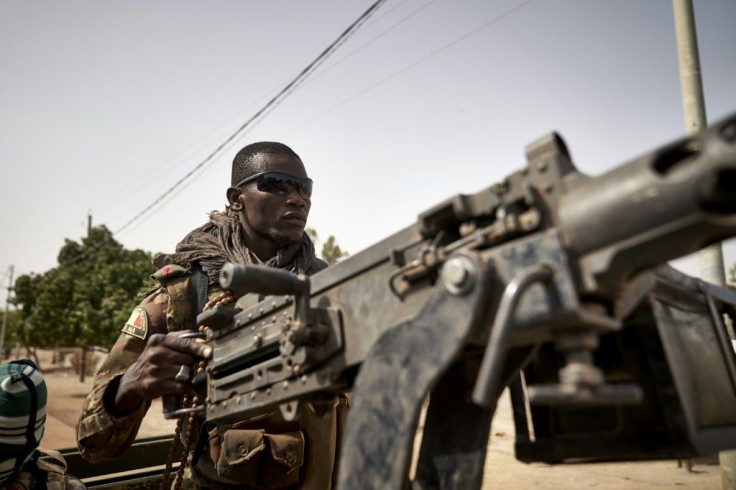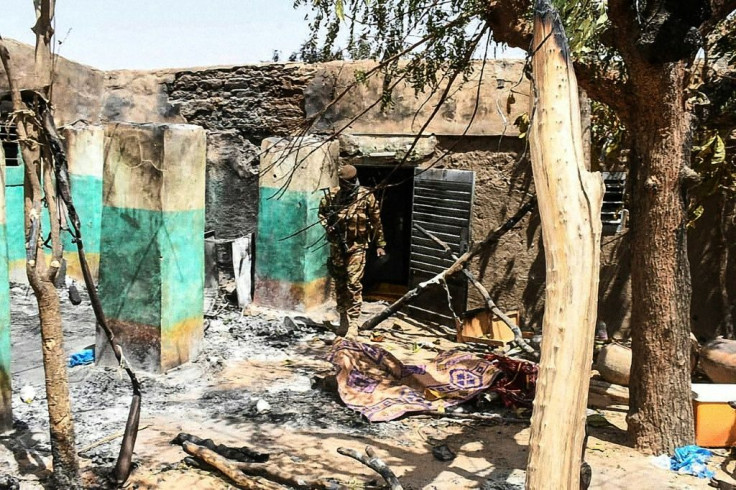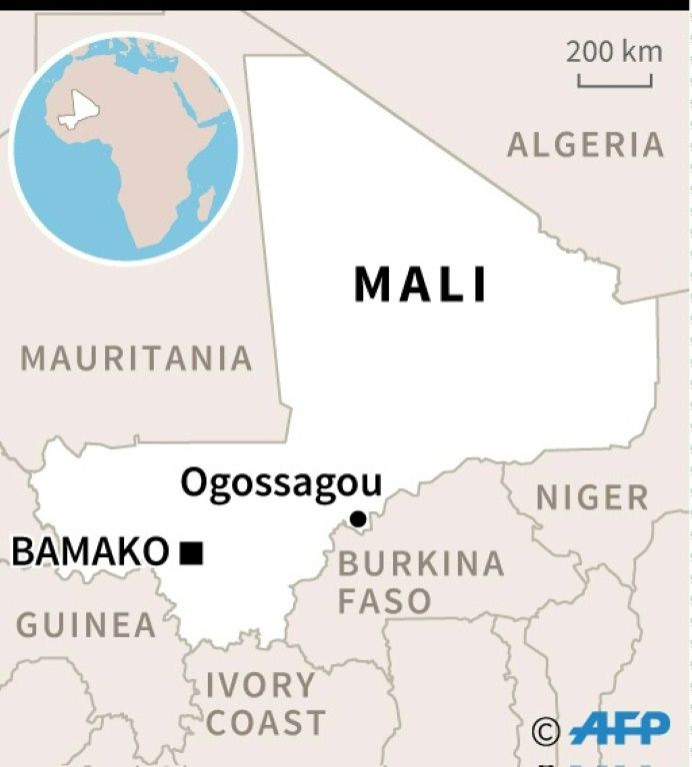Mali Village Scarred By February 14 Massacre

Less than a year after more than 160 Fulani civilians were massacred at dawn in Ogossagou in central Mali, terror returned to the small village.
Eight witnesses gave AFP their account of the latest attack on February 14 in which at least 30 civilians were butchered, bringing more bloodshed to the deeply troubled region.
Central Mali has been riven by inter-ethnic violence since a jihadist revolt broke out in the north of the West African country in 2012.
The insurgency has claimed thousands of lives, displaced more than a million people and spread to neighbouring countries, while deadly tit-for-tat attacks have flared in the centre.
The villagers from Ogossagou -- now off-limits for foreign journalists not escorted by troops -- recounted the fear that gripped them when a military garrison, set up after last year's devastating attack on March 23, left without warning.
When the 40-odd soldiers pulled out on February 13, it felt as though his brothers had left, said 46-year-old Bakaye Ousmane Barry.
Abdoulaye Cisse, the regional governor, told AFP the soldiers had been withdrawn as part of a redeployment of forces following a slew of deadly jihadist attacks.
"We saw the situation was not improving (at the national level), we wanted to change our positioning. Our forces were on the ground, but static, in poor positions," the governor said.
"We did not even close (the garrison), we were just regrouping. It was during this time that drama hit Ogossagou for a second time."
But the decision left the villagers -- divided between the Fulani and Dogon ethnic neighbourhoods -- to fend for themselves.
After being targeted in attacks, Dogon communities in the region began to form self-defence groups that were then accused of reprisal raids against the Fulani people, who had become associated with jihadists.
By mid-February, Ogossagou was the only place for miles where Fulanis, who are mainly herders and sedentary farmers, remained.
The soldiers left the village at six in the evening.
"We knew that the moment we were no longer protected, we would be attacked again," said a prominent local, speaking in the provincial capital Mopti.
"From that very moment until dawn, I received dozens of calls," he said on condition of anonymity.
The man has been residing in Mopti for the last five months after losing seven brothers and his father in last year's attack.

He had alerted six different authorities from the military, the government and the UN peacekeeping force, he said -- but in vain.
The UN's 13,000-member mission in Mali, called MINUSMA, confirmed it had been told that "armed men had been seen regrouping" near Ogossagou.
All the locals interviewed said the attackers were traditional Dogon hunters, who had been blamed for the previous massacre against Fulani.
At the time, there was no hard evidence to back up the allegation and the Dogon militia, Dan Na Ambassagou, had denied it was behind that raid.
Mariam Belko Barry, 67, said she had a premonition of impending disaster.
"It was impossible to make dinner," she said. "Why prepare meals when you know you are going to be attacked?"
Barry said given that the last attack occurred just before dawn, she was "waiting for the sun to rise, because things would be better".

UN troops arrived at the village a little before 2 am, MINUSMA spokesman Olivier Salgado said. It was more than six hours after they were tipped off.
They patrolled the village but the 50 peacekeepers saw "no sign of danger" and went on to nearby villages.
In Ogossagou, few people slept that night.
At five in the morning on February 14, the imam called the first prayer of the day. Bakaye, a herder, went to the mosque and prayed, thanking God.
A first shot rang just before the prayer ended at 5:30 am and Bakar froze.
Mariam Barry also heard the gunfire. She rushed to the house of the local shaman, who was killed last year, "as it's safer than my straw hut".
Then, along with her husband Aliou and many neighbours who sheltered there, she fled to the bush.
The wizened woman with deep wrinkles and a bent back said she "ran and ran" and lost sight of her husband.
He was hit by three bullets in the knee, hip and leg but survived.
Bakaye too ran out of the mosque and fled with many others as the gunfire from semi-automatic weapons intensified.
The villager living in Mopti for five months meanwhile kept on calling officials but was told that soldiers were on their way there and that they would have to wait.
Gunfire raged for two hours and a thick black spiral of smoke towered over the village as the attackers torched homes and granaries.
At eight, four army vehicles and three UN vehicles arrived. They arrested one attacker -- the others had fled.
Bakaye emerged from the tall bushes where he was hiding and returned.
"I looked for my loved ones, I called them, I don't know where they are," he said.
The locals trickled back. Meanwhile, the bodies -- some of them charred -- piled up. In the evening, Bamako announced 31 deaths.
Villagers say about 10 people are still missing. Bakaye's brother did not answer his telephone calls.
"I hope he is still in the bush hiding," he said, although hope fades with every passing day.
Nobody wants to return home.
"Not till my dying day," said Mariam Barry. "If the soldiers leave, we will be attacked again."
Another resident still living in Ogossagou said people's faith in the army had been shattered.
"Children no longer go out to play, we don't dare let the cattle out to graze, nor go to the well to fetch water or venture to gather firewood," she said.
"If we go out, we're dead."
© Copyright AFP 2024. All rights reserved.





















